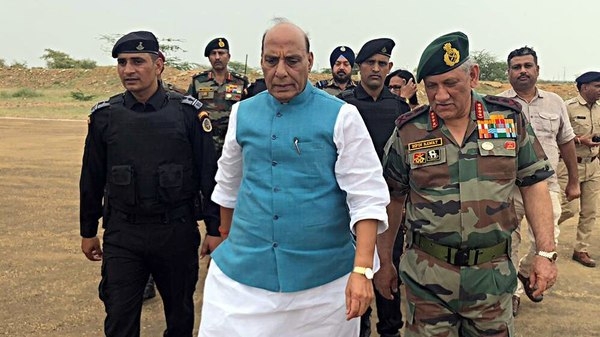Warning to Pakistan? Rajnath Singh on Nuclear Policy; says ‘No First Use Policy depends on future circumstance’
Pokhran, August 16: As India bows evoking the great contribution of the tallest leader Late Former Prime Minister Atal Bihari Vajapayee on his first death anniversary, Defence Minister Rajnath Singh paid his tribute in a special way. Raksha Mantri at Pokhran in a big statement on nuclear policy of India said that no first use policy will depend on the circumstances and the future.

Speaking to the media at Pokhran, Defence Minister on nuclear policy of India on Friday August 16 said that this is the truth that India's stand as much as Nuclear policy is concerned has remained ‘no first policy’ but what will happen in future will depend on the circumstances in the future.
It was in May 1988, Atal Bihari Vajpayee conducted Nuclear Test in Pokhran when he was the Prime Minister.
The Defence Minister also tweeted about the same and paid tributes to Former Prime Minister. BJP-led government has so far not proposed any change in the nuclear doctrine or the No First Use (NFU) on which India’s declaratory nuclear doctrine is based, however, in 2014 election manifesto, it had promised to “study in detail India’s nuclear doctrine, and revise and update it, to make it relevant to challenges of current times.”
Pokhran is the area which witnessed Atal Ji’s firm resolve to make India a nuclear power and yet remain firmly committed to the doctrine of ‘No First Use’. India has strictly adhered to this doctrine. What happens in future depends on the circumstances.
The relation between the nuclear neighbours India and Pakistan came on an edge after India abrogated Article 370 and bifurcated the state of Jammu and Kashmir into two Union Territories. While New Delhi said categorically to domestic and international platform alike that it is India's internal matter, Pakistan has called the 'unilateral' move as 'illegal' and has taken a number of actions against India including downgrading trade ties.





